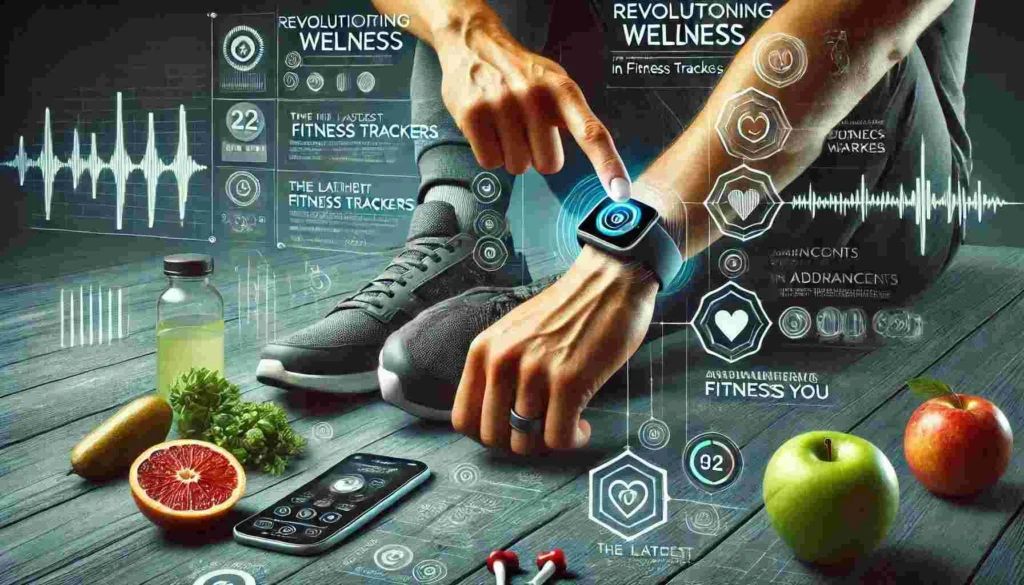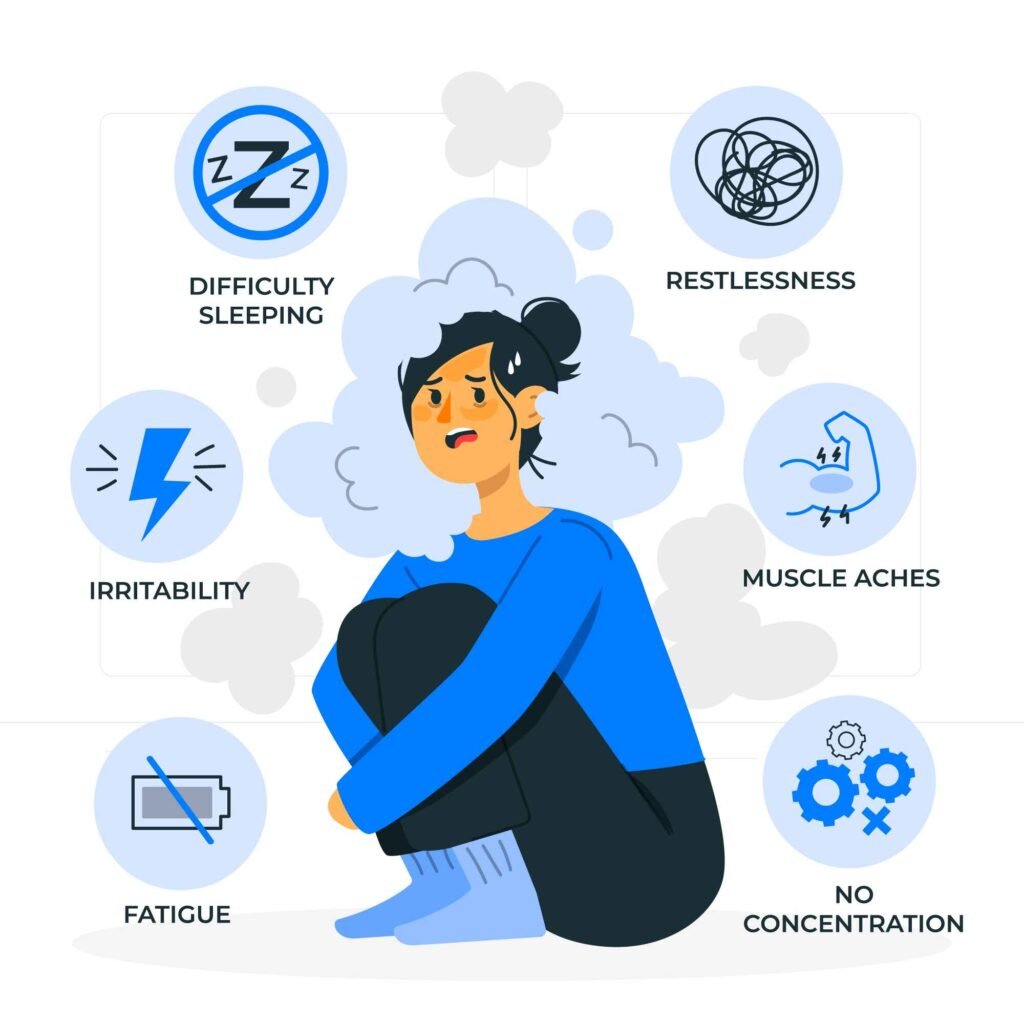
Revolutionizing Wellness: The Latest Advancements in Fitness Trackers for a Healthier You
Introduction: The New Age of Fitness Technology
Fitness trackers have evolved from simple step counters to comprehensive health management devices. With advancements in technology, these wearable gadgets now provide insights into fitness, wellness, and overall health like never before. From heart rate monitoring to sleep tracking, fitness trackers are transforming how we approach personal health and fitness goals.
In this blog, we’ll explore the latest advancements in fitness trackers and how they are revolutionizing wellness. Whether you’re a tech enthusiast or someone aiming to improve your health, this guide will show you how the newest features can support your journey.
The Evolution of Fitness Trackers
From Pedometers to AI-Driven Devices
The journey of fitness trackers began with pedometers, simple devices that tracked steps. Over the years, these gadgets have embraced advanced technologies like artificial intelligence (AI), machine learning, and biometric sensors. Today’s fitness trackers are no longer limited to counting steps—they analyze body composition, monitor stress levels, and even detect early signs of health issues.
Smart Sensors for Accurate Data Collection
One of the most significant advancements in fitness trackers is the use of smart sensors. Modern trackers can measure metrics like:
- Heart rate variability (HRV)
- Blood oxygen levels (SpO2)
- Skin temperature
These sensors provide real-time data, offering users a detailed view of their health metrics. For example, accurate heart rate tracking can alert users to potential cardiac issues, allowing early intervention.
Key Features Driving the Revolution
1. Advanced Sleep Monitoring
Sleep is a cornerstone of health, and fitness trackers have embraced this with advanced sleep monitoring capabilities. The latest devices can:
- Track sleep stages (REM, light, and deep sleep)
- Identify disruptions or patterns like sleep apnea
- Offer actionable insights to improve sleep quality
By understanding your sleep patterns, you can make lifestyle adjustments to feel more rested and energized.
2. Personalized Health Insights with AI
Artificial intelligence has elevated fitness trackers into personal health assistants. These devices analyze your data and provide personalized recommendations. For instance, AI algorithms can suggest optimal workout times, ideal recovery periods, and even dietary advice based on your activity levels and goals.
3. Stress and Mental Health Tracking
Modern fitness trackers now measure stress through heart rate variability and other metrics. They often include mindfulness features, like guided breathing exercises, to help users manage stress effectively. This integration of mental and physical health support is a game-changer for overall wellness.
4. Enhanced Battery Life
Battery life has been a major concern for wearable technology users. Recent innovations in battery efficiency now allow fitness trackers to last for days, even with constant monitoring and active use. This ensures you can track your health without frequent charging interruptions.
Fitness Trackers and Health Integration
A Unified Ecosystem for Health Management
Many fitness trackers now integrate seamlessly with apps and other devices, creating a unified health ecosystem. They sync with smartphones, smart scales, and even medical-grade devices to provide a holistic view of your health. These integrations empower users to take proactive control of their wellness.
Improved Accuracy for Medical Use
Advancements in accuracy are bridging the gap between consumer-grade fitness trackers and medical devices. Features like electrocardiogram (ECG) tracking are now available in some models, helping users and healthcare providers detect potential issues such as atrial fibrillation.
Breaking Barriers: Innovative Features of Modern Fitness Trackers
The rapid evolution of fitness trackers has introduced revolutionary features that cater to the growing demands of health-conscious users. These features aren’t just trendy—they are vital tools for those aiming to optimize their wellness journey. Let’s dive deeper into the game-changing innovations shaping the fitness tracker landscape.
Real-Time Health Monitoring: A Lifesaver
Continuous Glucose Monitoring (CGM) for Diabetics
One of the standout advancements in fitness trackers is the integration of continuous glucose monitoring. For individuals managing diabetes, this feature eliminates the need for painful finger pricks by providing real-time insights into blood sugar levels.
- Track fluctuations throughout the day
- Receive alerts for potential spikes or drops
- Make informed dietary and activity choices
This development empowers users to take control of their condition with minimal intrusion into their daily lives.
Blood Pressure Monitoring on Your Wrist
Fitness trackers now offer blood pressure monitoring, a feature once exclusive to medical devices. With the ability to check systolic and diastolic pressure, these wearables provide a non-invasive solution for tracking cardiovascular health. Regular monitoring can:
- Detect early signs of hypertension
- Help users identify triggers for blood pressure changes
- Support a proactive approach to heart health
Enhanced Fitness Metrics for Performance
VO2 Max and Training Insights
For fitness enthusiasts, VO2 max (a measure of oxygen consumption during intense exercise) is a game-changer. Fitness trackers equipped with this metric offer personalized insights into:
- Cardio fitness levels
- Recovery rates
- Optimal training zones
These insights are invaluable for athletes aiming to maximize performance or beginners trying to improve stamina.
Workout Recognition and Feedback
Modern fitness trackers have advanced workout recognition capabilities. Whether you’re swimming, running, cycling, or performing a yoga session, these devices can:
- Automatically identify the type of exercise
- Provide real-time feedback on form and effort
- Offer post-workout summaries, including calorie burn and muscle engagement
This automation simplifies fitness tracking while ensuring users stay informed about their progress.
Gamification: Making Fitness Fun
Achieving Goals Through Challenges
Fitness trackers are transforming mundane activities into engaging experiences. With gamification features, users can:
- Set personal fitness challenges
- Compete with friends or global communities
- Earn virtual rewards for hitting milestones
This approach adds motivation and excitement, making it easier to maintain long-term fitness habits.
Virtual Coaching and Guided Workouts
Virtual coaching is another feature reshaping fitness routines. Fitness trackers now offer guided workout programs tailored to user goals. Whether it’s weight loss, muscle building, or stress reduction, these virtual coaches provide step-by-step guidance, ensuring users stay on track.
A Shift Towards Preventive Health
Early Detection of Health Issues
Preventive health is a growing focus in wearable technology. Advanced sensors and AI algorithms work together to detect irregularities that may signal early health concerns, such as:
- Abnormal heart rhythms
- Low blood oxygen levels
- Chronic stress indicators
By alerting users to these signs, fitness trackers empower them to seek professional advice before issues escalate.
Fall Detection and Emergency Alerts
For seniors and individuals with mobility concerns, fall detection features are invaluable. Fitness trackers can now detect falls and send automatic alerts to emergency contacts. This capability is particularly beneficial for providing peace of mind to caregivers and families.
Connectivity and Smart Features
Syncing with Wearable Ecosystems
Fitness trackers are no longer standalone devices. They integrate with other smart devices, including smartwatches, phones, and even home automation systems. Key benefits include:
- Unified health data for better analysis
- Seamless integration with fitness apps and meal planners
- Remote control of music, calls, and notifications
This level of connectivity ensures that users can focus on their health without juggling multiple devices.
Voice-Activated Assistance
Many fitness trackers now include voice-activated features, allowing users to:
- Start workouts
- Set reminders for hydration and movement
- Get quick health summaries
This hands-free functionality is especially convenient for individuals leading busy lives.
Data Security: A Growing Concern
Protecting Personal Health Information
With the increasing reliance on fitness trackers for health data, privacy has become a significant focus. Manufacturers are now incorporating advanced encryption and secure cloud storage solutions to protect user information. Users should prioritize fitness trackers from brands with transparent privacy policies to ensure their data is safeguarded.
The Future of Fitness Trackers: What Lies Ahead
The world of fitness trackers is ever-evolving, with new advancements emerging to meet the growing demand for personalized health management tools. The future promises even more sophisticated technologies that will redefine how we approach wellness. In this final segment, we explore the trends and innovations shaping the next generation of fitness trackers.
Smart Wearables: A Health Coach on Your Wrist
Integration of Advanced AI for Predictive Health
Future fitness trackers will leverage artificial intelligence (AI) not just for analysis but also for prediction. These advancements may include:
- Predicting potential health risks based on user trends
- Offering preventative care advice tailored to individual needs
- Suggesting highly personalized lifestyle adjustments
Imagine a device that alerts you to a potential vitamin deficiency or flags early signs of chronic conditions. AI-driven health coaching will be a cornerstone of next-gen wearables.
Emotion Sensing Technology
Wearables are moving beyond physical metrics to focus on emotional well-being. By analyzing voice tone, facial expressions (via paired devices), and biometrics, future trackers could:
- Detect signs of anxiety or depression
- Offer guided mindfulness or stress-relief exercises in real-time
- Help users cultivate better mental health habits
This holistic approach bridges the gap between physical fitness and emotional wellness.
The Role of Big Data and Personalization
A New Era of Data-Driven Insights
As fitness trackers collect more data, their ability to deliver hyper-personalized insights will improve. Future trackers may aggregate data across broader timelines to:
- Identify long-term health patterns
- Provide enhanced comparisons against demographic norms
- Help users make better-informed health and fitness decisions
For instance, if your sleep quality deteriorates over several months, your tracker could suggest actionable solutions backed by scientific data.
Collaborative Healthcare
Fitness trackers will likely play a larger role in collaborative healthcare. Shared data with healthcare professionals could:
- Improve diagnostic accuracy
- Aid in developing tailored treatment plans
- Enable remote monitoring for patients with chronic conditions
This integration will empower users to stay connected with their doctors while actively managing their health.
New Technologies on the Horizon
Flexible and Wearable Screens
The future of fitness trackers will embrace sleek designs with flexible screens. These next-gen devices will offer:
- Larger displays for better readability
- Enhanced touch controls for seamless interaction
- Customizable options to suit user preferences
This innovation will ensure a more user-friendly experience without compromising style.
Solar-Powered Fitness Trackers
Battery concerns may soon become a thing of the past. Solar-powered fitness trackers are in development, offering a sustainable solution for continuous health monitoring. These devices will reduce dependency on charging while appealing to eco-conscious users.
Advanced Biometric Sensors
The coming years will see fitness trackers equipped with sensors capable of monitoring:
- Hydration levels
- Blood alcohol concentration
- Body fat percentage
These advancements will provide deeper insights into health metrics, making fitness trackers indispensable for daily use.
Accessibility and Inclusivity in Fitness Trackers
Affordable Options for Broader Access
Manufacturers are recognizing the importance of making fitness trackers accessible to a wider audience. Future devices will likely offer:
- Budget-friendly options with core features
- Subsidized models for specific demographics, such as seniors or students
- Simplified designs for users with minimal tech experience
This push for inclusivity will ensure that everyone, regardless of income or background, can benefit from wearable technology.
Fitness Trackers for Diverse Needs
Beyond fitness enthusiasts, trackers are becoming more versatile to cater to specific user groups. For example:
- Devices tailored for individuals with disabilities, offering customized activity tracking
- Specialized features for seniors, such as reminders for medication and fall detection
- Trackers designed for children, encouraging healthy habits from an early age
These advancements reflect a broader understanding of diverse wellness needs.
The Environmental Impact of Fitness Trackers
Eco-Friendly Manufacturing
Sustainability is a growing concern in the tech world, and fitness trackers are no exception. Future models will likely focus on:
- Recyclable materials for reduced environmental impact
- Energy-efficient production processes
- Longer product lifespans to minimize electronic waste
Eco-conscious consumers will find these features appealing as they align with global efforts to protect the environment.
Recycling Programs for Wearable Devices
Manufacturers may introduce recycling programs, encouraging users to return old devices for proper disposal or repurposing. These initiatives will ensure that fitness trackers contribute to health without compromising the planet.
How Fitness Trackers Will Redefine Wellness
Bridging the Gap Between Fitness and Healthcare
The convergence of fitness tracking and healthcare will redefine wellness for the modern user. Fitness trackers will act as intermediaries between individuals and medical professionals, fostering a proactive approach to health. By identifying issues early and providing actionable solutions, these devices will become indispensable tools for maintaining overall well-being.
Encouraging a Preventive Lifestyle
The focus of future fitness trackers will shift from reactive measures to preventive care. By emphasizing daily habits and long-term health goals, these devices will:
- Promote consistent physical activity
- Reinforce the importance of mental health management
- Help users maintain balanced diets and sleep routines
This preventive approach aligns with the growing trend of holistic wellness.



